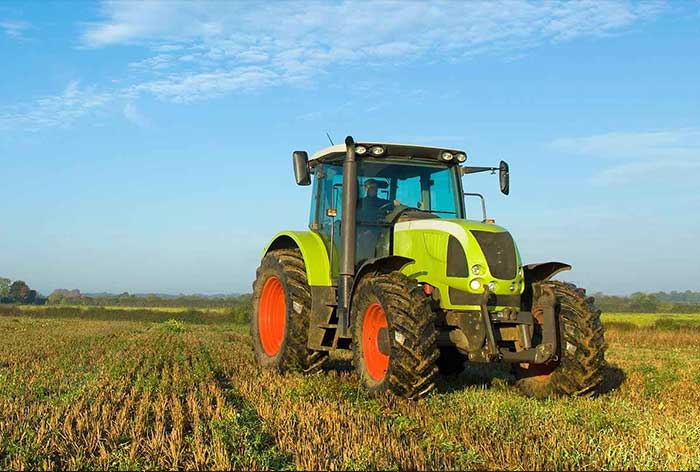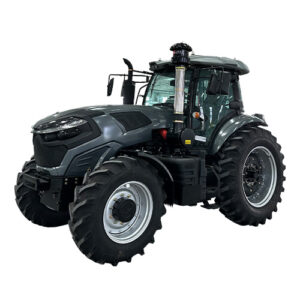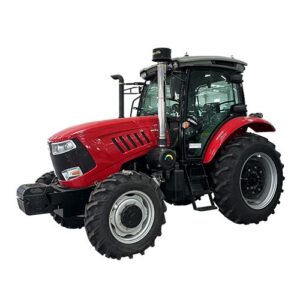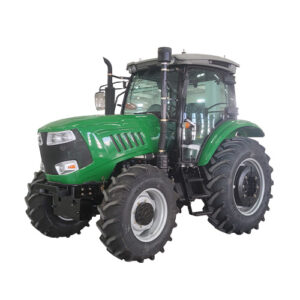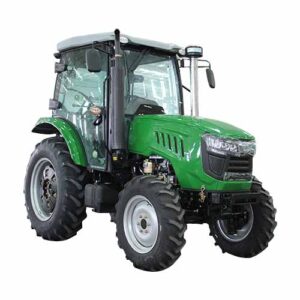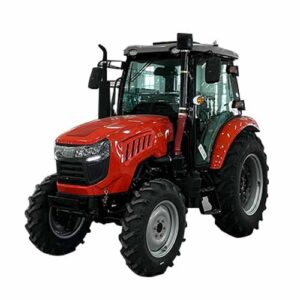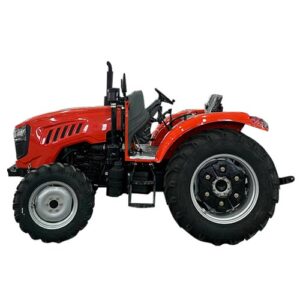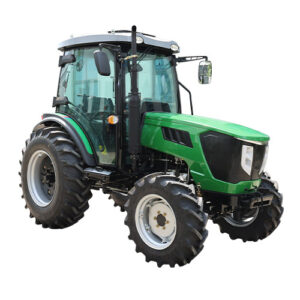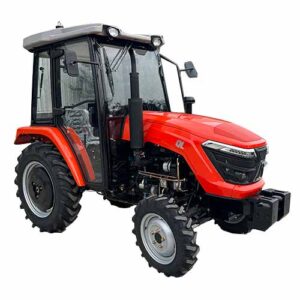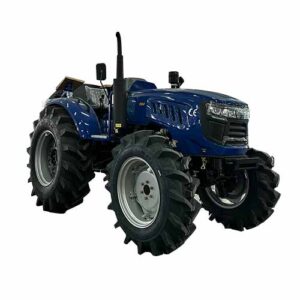Introduction
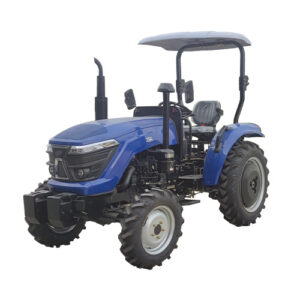
Small farm tractors play a crucial role in modern agriculture, offering versatility, power, and efficiency to farmers working on limited acreage. Choosing the best small farm tractor can significantly impact productivity and profitability. In this blog post, we’ll explore the key factors to consider when selecting a small farm tractor, highlight some top picks, and provide tips for maximizing efficiency in your farming operations.
Factors to Consider When Choosing the Best Small Farm Tractor
When evaluating small farm tractors, several factors come into play:
Power and Engine Size:
- Consider the horsepower (HP) of the tractor in relation to the tasks you need to perform. Higher horsepower typically means the tractor can handle more demanding jobs such as tilling, mowing, or hauling heavy loads.
- Evaluate the torque output of the engine, which determines the tractor’s ability to pull or push heavy loads.
- Look for features like turbocharging or intercooling, which can improve the engine’s performance and efficiency.
Size and Maneuverability:
- Assess the physical dimensions of the tractor to ensure it can navigate through narrow spaces, around obstacles, and between rows of crops.
- Consider features like a tight turning radius, articulated steering, or four-wheel drive for improved maneuverability in tight spaces or rough terrain.
- Balance compact size with sufficient weight and stability to handle various implements without tipping over.
Attachments and Implements:
- Check the compatibility of the tractor with a wide range of implements such as plows, tillers, seeders, sprayers, and loaders.
- Look for features like quick hitch systems or universal attachment points that make it easy to switch between implements.
- Consider the hydraulic capacity and number of hydraulic outlets for powering implements that require hydraulic functions.
Fuel Efficiency:
- Look for tractors with modern engine technologies such as electronic fuel injection, variable valve timing, or common rail fuel systems, which improve fuel efficiency and reduce emissions.
- Consider features like auto-idle or eco-mode, which automatically adjust engine speed to match the workload, saving fuel during lighter tasks.
- Evaluate the tractor’s fuel consumption ratings and compare them with similar models to identify the most fuel-efficient option.
Durability and Reliability:
- Research the reputation of different tractor brands for manufacturing high-quality, durable equipment.
- Consider factors like the construction of the chassis, frame, and drivetrain components, as well as the quality of materials used in manufacturing.
- Read reviews from other farmers or agricultural professionals to gauge the reliability and longevity of specific tractor models.
Price and Value:
- Compare the upfront cost of purchasing the tractor with its long-term value and return on investment.
- Consider factors like resale value, warranty coverage, and the availability of spare parts and service support.
- Calculate the total cost of ownership over the expected lifespan of the tractor, including maintenance, repairs, fuel, and depreciation, to determine the best value for your budget.
Tips for Maximizing Efficiency with Your Best Small Farm Tractor
Once you’ve selected the best small farm tractor for your needs, here are some tips to maximize efficiency:
- Proper Maintenance: Regularly service your tractor to ensure optimal performance and longevity.
- Match Implements to Tasks: Use the right implements for each farming task to minimize fuel consumption and reduce strain on the tractor.
- Plan Field Operations: Optimize field operations to minimize idle time and maximize productivity.
- Consider Precision Farming: Explore precision farming technologies to enhance efficiency and yield.
- Invest in Training: Ensure operators are properly trained to operate the tractor safely and efficiently.
Tractor Inspection Checklist
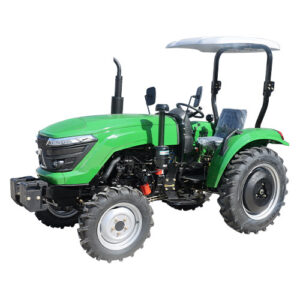
| Component | Inspection Points | Frequency | Action Required |
|---|---|---|---|
| Engine | Oil level, leaks, belts, hoses, air and fuel filters | Weekly | Refill oil, replace filters if needed |
| Transmission | Fluid level, leaks, clutch operation | Monthly | Top up fluid, adjust clutch if needed |
| Hydraulic System | Fluid level, leaks, hoses, cylinder operation | Monthly | Top up fluid, repair leaks |
| Cooling System | Coolant level, leaks, radiator condition | Monthly | Top up coolant, repair leaks |
| Steering | Play in steering wheel, linkage condition | Monthly | Adjust steering, replace parts if necessary |
| Brakes | Brake pedal travel, brake fluid level, pads | Monthly | Adjust brakes, replace pads if worn |
| Electrical System | Battery condition, wiring, lights, gauges | Quarterly | Charge or replace battery, repair wiring |
| Tires | Tire pressure, tread wear, condition | Monthly | Inflate tires, replace if worn or damaged |
| Safety Features | Rollover protection structure (ROPS), seatbelt | Quarterly | Ensure ROPS and seatbelt are functional |
| Attachments and Implements | Wear, damage, proper attachment | As needed | Repair or replace damaged parts, ensure proper attachment |
Conclusion
Choosing the best small farm tractor requires careful consideration of factors such as power, size, attachments, and price. By selecting the right tractor and implementing efficient farming practices, farmers can enhance productivity, reduce costs, and achieve greater profitability.
FAQ
Q: Can I use a small farm tractor for both field work and landscaping?
A: Yes, many small farm tractors are versatile enough to handle both field work and landscaping tasks with the right attachments.
Q: How do I determine the right horsepower for my farm tractor?
A: The horsepower needed depends on the size of your farm, the type of terrain, and the specific tasks you’ll be performing. It’s best to consult with a tractor dealer or agricultural expert for personalized recommendations.
Q: Are there any financing options available for purchasing a small farm tractor?
A: Yes, many tractor manufacturers and dealers offer financing options to help farmers afford the equipment they need. Be sure to explore various financing packages and compare terms before making a decision.
Q: What is the lifespan of a small farm tractor?
A: With proper maintenance and care, a small farm tractor can last for many years. However, the lifespan can vary depending on usage, maintenance practices, and operating conditions.
Q: Can I retrofit older tractors with modern attachments and implements?
A: In many cases, older tractors can be retrofitted with modern attachments and implements to enhance functionality and efficiency. However, compatibility issues may arise, so it’s essential to consult with a knowledgeable dealer or technician.
This guide should provide you with the necessary information to choose the best small farm tractor for your needs and maximize its efficiency in your farming operations. If you have any further questions, feel free to reach out to a local agricultural equipment dealer or expert for assistance.


